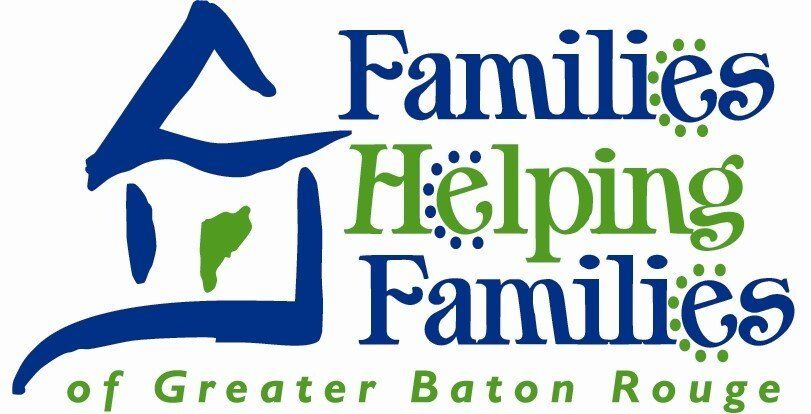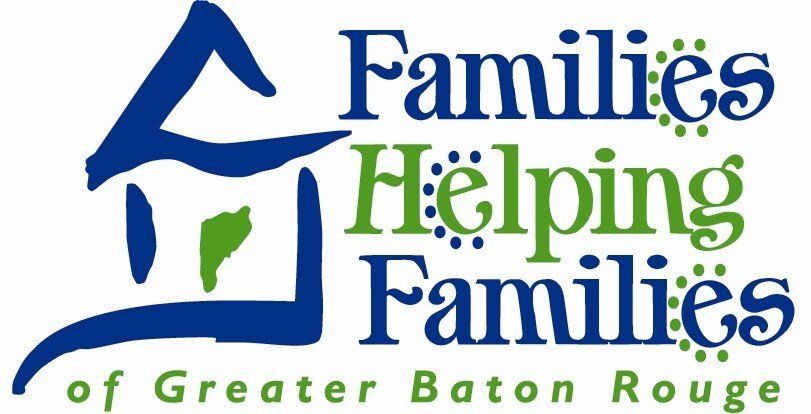Resource Center for Autism Spectrum Disorder (RCASD)
A program of Families Helping Families of Greater Baton Rouge (FHFGBR).
Our Services
Information & Referral
Program staff strive to stay abreast of resources and information on a wide variety of topics and issues pertaining to Autism Spectrum Disorder. We utilize a person centered approach when connecting you with the medical, therapeutic, educational, transition, legal and recreational resources that will help to provide for more positive outcomes.
Education & Training
Program services are delivered through a peer support model. Individuals, parents, caregivers and other family members will receive support from staff who are parents too. This level of understanding and experience is what gives the center it’s unique approach in serving others.
Family-to-Family Support
Our program staff collaborate with numerous organizations and agencies throughout the community to bring about informative trainings on a variety of topics that may be of interest to families living with a diagnosis of Autism Spectrum Disorder and other developmental disabilities.
What RCASD Has to Offer:
- Advocacy for Autism Services
- Internet/Computer Access for Families
- Toll-free Phone Line for Information and Support
- Ongoing Support from other family-members who share the unique understanding of caring for a loved one with autism.
- Workshops and Trainings on Autism Related Topics
- Annual Autism Awareness Walk
Active for Autism - What It's All About!
The annual Active for Autism event promotes awareness, acceptance and inclusion of individuals affected by Autism Spectrum Disorder (ASD). This event provides the community the opportunity to come together in celebration and support of individuals affected by Autism and their families.
AFA includes a 5k run, a 1 mile awareness walk, and a family fun festival. In the fun festival area, local service providers set up booths offering fun, family-friendly activities. They also provide resources that may benefit your loved ones. Active for Autism 5k Walk/ Run & Fun Fest is a wonderful opportunity to share critical information that can positively enhance one’s quality of life and lead to better outcomes.
Proceeds from this signature event benefit all Families Helping Families of Greater Baton Rouge programs and helps us to continue to provide services to positively enhance the independence, productivity and inclusion of individuals living with ASD throughout the year.
This year is extra special because Families Helping Families of Greater Baton Rouge is celebrating 25 years of serving our regional community! Please stay tuned for further updates as we get closer to getting “Active for Autism” on April 27, 2024.
If you are interested in sponsorship, vendor, or in-kind donor opportunities, please click here.
2024 Registration is now open. Click HERE to register!
RCASD – Resources
-
State & Federal Reports on Autism
The US Government has issued Mental Health: A Report by the Surgeon General, validating the research supporting ABA as the leading treatment for autism. The report concludes that “thirty years of research demonstrated the efficacy of applied behavioral methods in reducing inappropriate behavior and in increasing communication, learning, and appropriate social behavior.”
-
ABA Related Links
Autism Special Interest Group (SIG) is an international professional organization that has articulated “Guidelines for Consumers of Applied Behavior Analysis Services to Individuals with Autism.”
Association for Science in Autism Treatment. Their mission is to share accurate, scientifically sound information about autism and treatments for autism. Their site contains extensive information resources, including information about upcoming conferences. Sign up for their excellent free newsletter.
Behavior Analyst Certification Board, Inc. (BACB) is a nonprofit corporation established to meet professional credentialing needs identified by behavior analysts, governments, and consumers of behavior analysis services. At their website, you can learn about the academic and training requirements for certification, and find a list of certified professionals.
Cambridge Center for Behavioral Studies is a nonprofit organization that promotes practical, evidence-based applications of behavioral science in the home, school, and the workplace.
-
Publications
Autism Spectrum News (ASN) is a quarterly publication that distinguishes itself from many autism resources available in print and on the internet by focusing strictly on evidence-based treatments and practices that have been studied in clinical trials and research studies by members of the scientific community. In keeping with this philosophy, ASN works with some of the autism community’s leading minds in the areas of science, treatment, education, and advocacy. They have volunteered to serve on ASN’s Editorial Board, and review the content in each issue before it goes to print. To subscribe to ASN, or view archived issues online, go here.
RCASD- Important Links
-
Autism Support Groups
- Helping Hands Support Group this support group is held by RCASD.
-
Education & Parenting Help
-
Organizations & Laws
RCASD- Autism FAQ
Autism spectrum disorder (ASD) is a complex developmental disability; signs typically appear during early childhood and affect a person’s ability to communicate, and interact with others. ASD is defined by a certain set of behaviors and is a “spectrum condition” that affects individuals differently and to varying degrees. There is no known single cause of autism, but increased awareness and early diagnosis/intervention and access to appropriate services/supports lead to significantly improved outcomes. Some of the behaviors associated with autism include delayed learning of language; difficulty making eye contact or holding a conversation; difficulty with executive functioning, which relates to reasoning and planning; narrow, intense interests; poor motor skills’ and sensory sensitivities. Again, a person on the spectrum might follow many of these behaviors or just a few, or many others besides. The diagnosis of autism spectrum disorder is applied based on analysis of all behaviors and their severity.
What are the most common characteristics of autism?
Every person with autism is an individual, and like all individuals, has a unique personality and combination of characteristics. Some individuals mildly affected may exhibit only slight delays in language and greater challenges with social interactions. They may have difficulty initiating and/or maintaining a conversation. Their communication is often described as talking at others instead of to them. (For example, a monologue on a favorite subject that continues despite attempts by others to interject comments). People with autism also process and respond to information in unique ways. In some cases, aggressive and/or self-injurious behavior may be present. Persons with autism may also exhibit some of the following traits:
- Insistence on sameness; resistance to change
- Difficulty in expressing needs, using gestures or pointing instead of words
- Repeating words or phrases in place of normal, responsive language
- Laughing (and/or crying) for no apparent reason; showing distress for reasons not apparent to others
- Preference to being alone; aloof manner
- Tantrums
- Difficulty in mixing with others
- Not wanting to cuddle or be cuddled
- Little or no eye contact
- Unresponsive to normal teaching methods
- Sustained odd play
- Spinning objects
- Obsessive attachment to objects
- Apparent over-sensitivity or under-sensitivity to pain
- No real fears of danger
- Noticeable physical over-activity or extreme under-activity
- Uneven gross/fine motor skills
- Non-responsive to verbal cues; acts as if deaf, although hearing tests in normal range
Why is early intervention so important?
Early intervention is defined as services delivered to children from birth to age 3, and research shows that it has a dramatic impact on reducing the symptoms of autism spectrum disorders. Studies in early childhood development have shown that the youngest brains are the most flexible. In autism, we see that intensive early intervention yields a tremendous amount of progress in children by the time they enter kindergarten, often reducing the need for intensive supports.
Content Source: Autism Society of America. “Autism FAQ” 31 January 2008. Online web page. Accessed on 12 December 2010
2356 Drusilla Lane,
Baton Rouge, LA 70809
Phone: 225-216-7474
Toll Free: 1-866-216-7474 Fax: 225-216-7977


